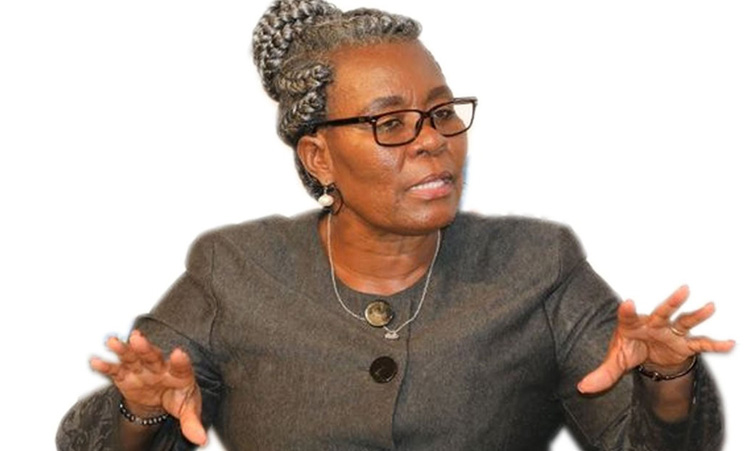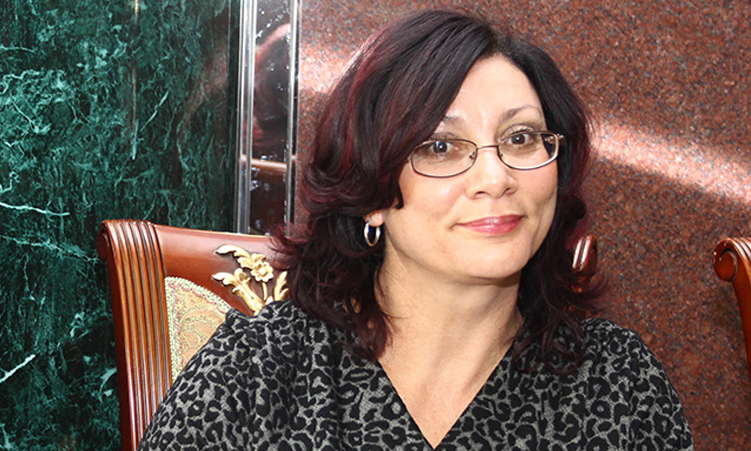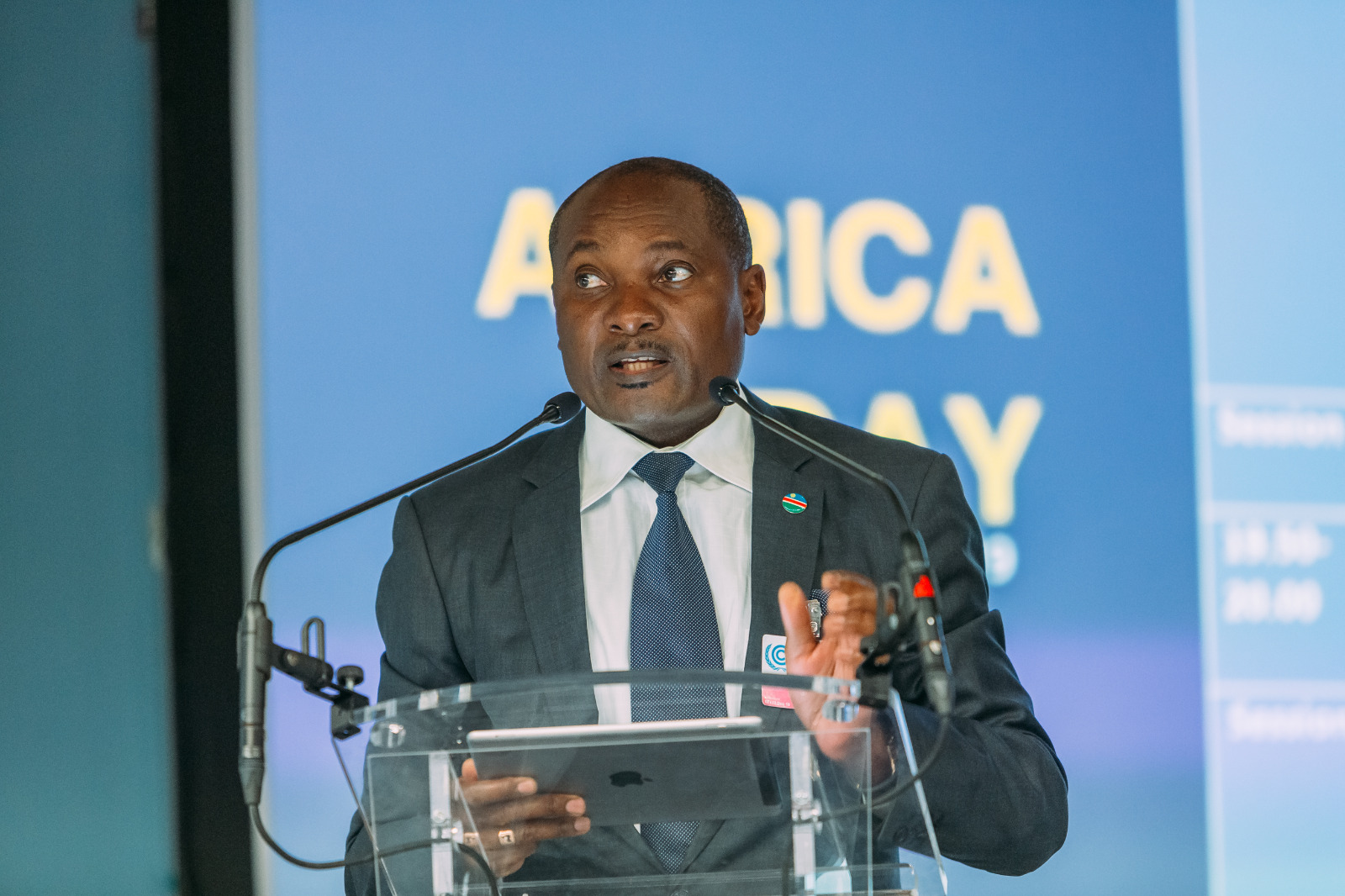27 June 2024
I am deeply honoured to address you today as we celebrate Africa Public Service Day 2024.
This occasion highlights our shared commitment to acknowledging the crucial role of public service in our societies. It is an opportunity to celebrate our successes, assess our advancements, and reaffirm our dedication to the principles that steer our public sector, which are innovation, professionalism, and excellence.
This year’s Africa Public Service Day, themed ‘Empowering Citizen-Centric Public Service for an Inclusive and Thriving 21st Century Africa: A Journey of LifeLong Learning and Technological Transformation’, promises to be an inspiring and transformative event.
It aligns seamlessly with the African Union’s declaration of 2024 as ‘The Year of Education’, highlighting the crucial role education plays in shaping the future of our continent. Both themes emphasise the importance of lifelong learning and technological innovation in creating a more inclusive and prosperous Africa.
In Namibia, we have wholeheartedly embraced this year’s theme, understanding that a strong education system is fundamental to our national development. As we gather here today, let us reflect on our journey, celebrate our achievements, and envision the future we aim to create.
This year’s Africa Public Service Day theme underscores the essential role of education and technology in fostering an inclusive and thriving continent.
Over the past decades, African governments have made substantial investments and commitments to their educational systems, leading to significant achievements. Primary school completion rates have increased from 52% in the year 2000, to 69% by 2022, reflecting a strong emphasis on ensuring that more children complete their basic education. Additionally, youth literacy rates in sub-Saharan Africa have improved remarkably, rising from 66% in the year 2000, to 78% in 2020.
These improvements highlight the success of various educational reforms and initiatives aimed at enhancing access to quality education.
These advancements are a testament to the dedication of African governments to building resilient educational infrastructures that support lifelong learning and technological transformation. The focus on education aligns perfectly with the broader theme of empowering citizen-centric public services, as an educated populace is better equipped to contribute to, and benefit from innovative public service initiatives.
As we celebrate these achievements, we must also continue to envision and work towards a future where education and technology drive sustained progress and development across the continent. Despite the investments in getting children into school, and ensuring they are learning, significant challenges remain. On the African continent, 98 million children do not attend school, and 89% of 10-year-olds in sub-Saharan Africa cannot read and understand a simple text.
The United Nations Educational, Scientific and Cultural Organisation (Unesco) identifies funding gaps and teacher shortages as two critical issues that need to be addressed, as a matter of urgency. Their research indicates that an additional $77 billion is required for African countries to reach their education targets, and an additional 15 million teachers are needed to achieve universal primary and secondary education.
These challenges are exacerbated by diminishing aid budgets, which fell to 23% for education last year.
In Namibia, the government has shown a strong commitment to addressing these challenges by significantly increasing the education budget. This year, the Namibian government increased the education budget from N$16,9 billion to about N$18,4 billion, demonstrating its dedication to improving educational outcomes and ensuring that all children have access to quality education.
While there has been considerable progress, these efforts highlight the ongoing need for substantial investment and strategic initiatives to overcome the existing challenges in the education sector.
The efficient functioning of businesses and the adaptation to new technology require a skilled labor force and technologically knowledgeable consumers. Investing in knowledge is essential for ensuring long-term economic growth and fostering well-being. This investment has significant implications for designing and implementing lifelong learning strategies that are vital for creating a 21st-century-ready Africa.
In Namibia, the concept of lifelong learning is particularly pertinent. It involves creating processes that promote learning for everyone, by any acceptable means, anywhere, anytime, and at any stage of life. This approach prepares individuals for active participation in life and fosters active partnerships for learning.
Lifelong learning opportunities in Namibia are designed to enhance the learning trajectory of individuals across all life stages. This includes early childhood development, primary, secondary, higher education, technical and vocational education and training (TVET), formal and non-formal learning opportunities for out-of-school children, and adult and continuing education. Learning at different stages of life serve as both an entry point and an outcome, with constant relearning and up-skilling being essential to meet emerging labour market needs.
Namibia’s public service has been instrumental in creating an environment where education can flourish. Our dedication to the United Nations Sustainable Development Goals (SDGs), especially Goal 4, which focuses on quality education, has been steadfast. Through strategic policies and innovative approaches, we have significantly advanced in making education accessible, inclusive, and relevant.
Having said that, lifelong learning is a core principle and a key guiding tool for the global education and sustainable development agenda. It encompasses learning at all life stages and promotes continuous skill development to adapt to the evolving labour market. By fostering a culture of lifelong learning, Namibia aims to build a more prosperous and equitable society, ensuring that its public services are responsive, efficient, and a source of pride.
As I move towards my conclusion, I would like to make a clarion call to all public servants to embark upon capacity development to stay relevant to the demands of the continent, the region and specific countries.
The Namibian Institute of Public Administration and Management (Nipam), as an institution of government, is there to serve that purpose. Furthermore, we are in an era of digital transformation, and as public servants, we need to be part of the digital ecosystem, and this is where we live with knowledge being dynamic, and not static.
Therefore, if all public servants aim to subscribe to what this year’s theme proposes, i.e. inclusivity, technological advancement and lifelong learning, then I truly believe that the citizenry we serve will also reap the fruits, and what we aspire as Africa, shall be lived through exposure.
In conclusion, allow me to share an extract from the remarks of the president of the Republic of Namibia, Nangolo Mbumba, who joins Namibians and the African continent in commemorating Africa Public Service Day, and his message is as follow:
“Today, we unite with the African continent to celebrate Africa Public Service Day, an important date on the calendar of African public servants. As Namibian public servants, you can honour this day by upholding the values and professionalism of the public service we provide to our citizens. We have to put citizens at the heart of everything we do in public service and deliver services that meet their requirements. Public servants are first and foremost about the citizens to whom they are obliged to provide public services.
In a rapidly changing global landscape, public servants should embrace the continuity of technological innovation and learning to improve public service delivery to citizens and live by our institutional charters to deliver what we have promised to the nation. It is through the relentless dedication and tireless efforts of public servants that we achieve progress and uphold the principles of good governance.
I urge public servants to continuously improve the quality of public services they provide to our citizens and strengthen our governance architecture to enable us to act in the best interest of our continent and its citizens. Continue to collaborate and work together to strengthen the capacity of the public sector while promoting professionalism, accountability, responsiveness, and a culture of high performance in public service delivery.
By fostering a culture of innovation and inclusivity, we can build a more prosperous and equitable Namibia. Together, we can ensure that our public services are responsive, efficient, a source of pride, and a testament to our shared vision for a better future for Namibia, and its citizens.
Happy Africa Public Service Day!
Stay informed with The Namibian – your source for credible journalism. Get in-depth reporting and opinions for
only N$85 a month. Invest in journalism, invest in democracy –
Subscribe Now!






